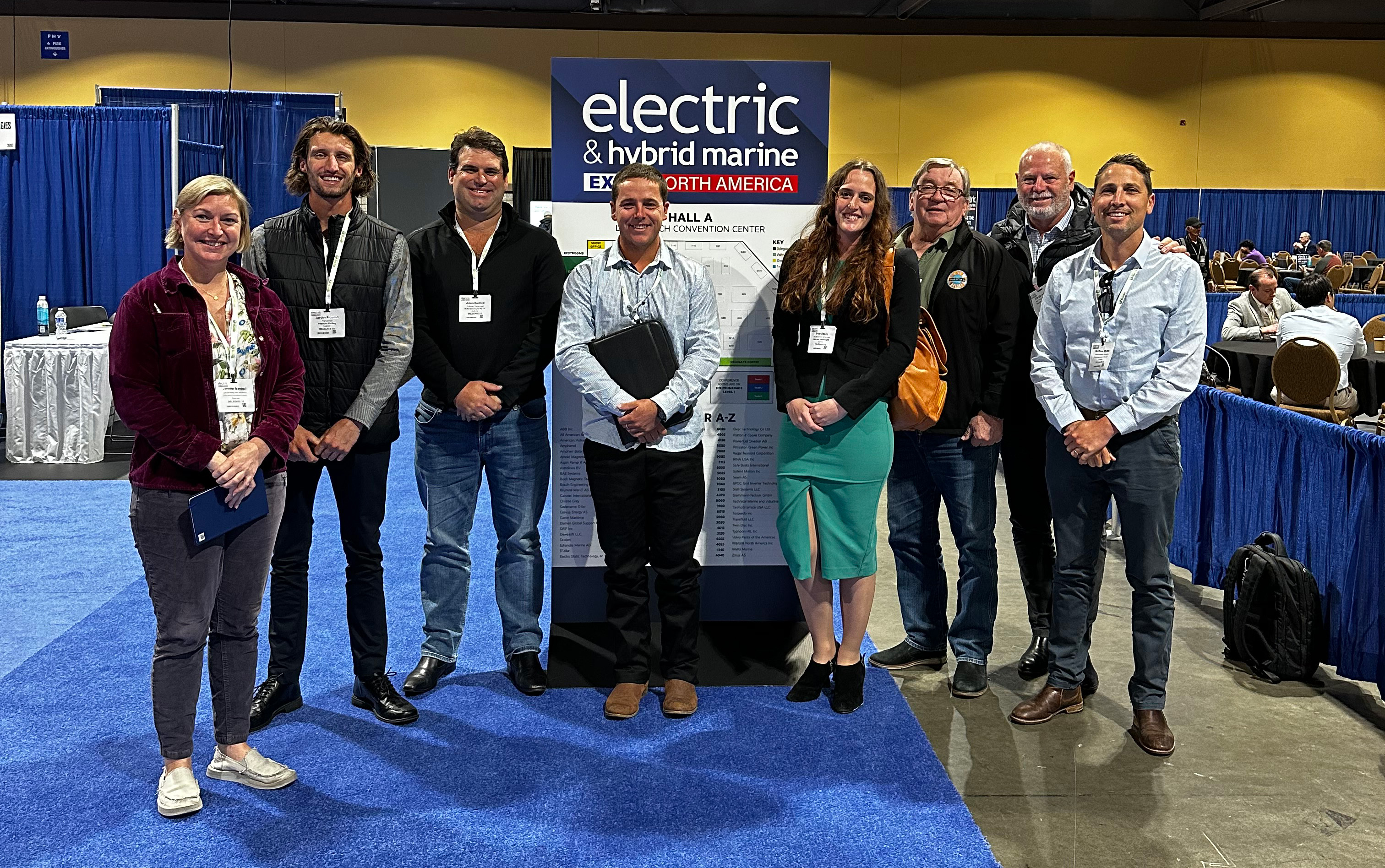Delegates sponsored by FRDC at the recent Electric and Hybrid Marine Expo had the opportunity to explore new global perspectives and lead discussions on advancing the decarbonisation of Australia’s commercial fishing and aquaculture sectors.
Transitioning Australia’s fishing and aquaculture vessels to electric and hybrid fuel technologies is a difficult task – yet it promises significant benefits drastically reducing greenhouse gas emissions.
Clayton Nelson, General Manager of Policy for Austral Fisheries, believes that this shift will not only enhance the sectors social license, but potentially increase market share among climate-conscious consumers.
Last year, Clayton was part of a group of Australian fishing and aquaculture leaders who contributed to the FRDC funded report (2021-089), ‘Climate Resilient Wild Catch Fisheries’. This report provided a comprehensive study into the various strategies to decarbonise the propulsion and auxiliary fuel needs of Australian fishing vessels.
The report highlights that in the short-term, renewable diesel offers the most promising solution for skippers. However, for a long-term impact, battery and electric outboards emerged as the number one option for reducing greenhouse gas emissions across boats using petrol outboards.
To advance this investigation in a more global context, the Electric and Hybrid Marine Expo, held in Long Beach, California, was identified as an ideal opportunity to hear and see what other global industries are doing. As such, FRDC funded an Australian delegation, led by Clayton and Dr Jennifer Marshall, FRDC Acting General Manager of Strategy and Innovation, to attend the conference. The event showcased emerging vessel technologies and components designed to help achieve zero-emission fishing and shipping.

Among the FRDC delegates was General Manager of Australia Bay Seafoods Michael O’Brien who says the expo was valuable in shaping his views on the current carbon footprint of both fishing businesses and the fishing sector.
“Australia Bay Seafoods is currently building a new vessel, and if I had been to the expo earlier, I would have suggested some vessel design changes. We could have looked at an inline electric shaft running the propulsion off the auxiliary engines, for example. It’s not new technology, but it’s now been developed to work in our sized vessels.”
Michael says presentations at the expo underscored the regulatory challenges as well as technical challenges in new fuel systems – and that the US is just beginning to transition to decarbonising its marine fleets.
Several other issues arose from the presentations, including vessel construction standards, fire safety on board vessels and the higher levels of training and certification needed for people working with more complex fuel systems.
Michael also had broader considerations.
“I also keep thinking about our power grid and whether it has the capacity to handle multiple vessels recharging at port, particularly in some of the more remote areas we fish in,” he added.
Other delegates who attended the expo included Matt Whittle (Huon Aquaculture), Jayden Pittorino and Adam Radford (Western Rock Lobster sector), Matt Ottersen (Western Australia trawl fishery) and Prue Davey (Gulf Carpentaria Spanish Mackerel fishery) and Dr Jennifer Marshall, FRDC’s Acting General Manager Strategy and Innovation.
A new way of thinking
Clayton said a significant benefit of the trip was the numerous conversations the cohort had about new decarbonisation methods and alternative fuel technologies.
“There is a lot of global innovation the cohort group might not encounter in their usual operations. The expo raised awareness of these new ideas, encouraging curiosity and discussions within the delegates’ own networks,” says Clayton.
Jen also emphasised that the expo provided an important opportunity for attendees to experience the latest technology and learn from early adopters of electric and hybrid fuel systems to help envision their own future pathways.
She acknowledges the challenges in helping the fisheries and aquaculture sectors to decrease their greenhouse gas emissions and the value in understanding how end users, innovators and regulators view these challenges as part of the broader system.
“One of FRDC’s national strategic priorities is to help our stakeholders reduce emissions, to improve their resilience to climate change and mitigate its effects.
“As the discussions around decarbonisation continue to evolve, the insights and experiences gained from the expo will be crucial in steering Australia’s fishing and aquaculture sectors toward a sustainable and carbon-neutral future.”





